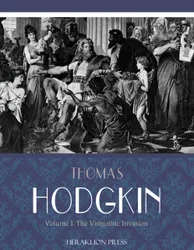In the gradual transformation of the old world of classical antiquity into the world with which the statesmen of today must deal, no man played a greater part than Charles the Great, King of the Franks and Emperor of Rome. The sharp lines of demarcation which we often draw between period and period, and which are useful as helps to memory, have not for the most part had any real existence in history, for in the world of men, as in the development of the material universe, it is true that uniformity rather than cataclysm is the rule: Naturanon vadit per saltum. Still there are some great landmarks, such as the foundation of Constantinople, Alaric's capture of Rome, the Hegira of Mohammed, the discovery of America, the Reformation and the French Revolution, which have no merely artificial existence. We can see that the thoughts of the great majority of civilized men were suddenly forced into a different channel by such events, that after they had occurred, men hoped for other benefits and feared other dangers than they had looked for before these events took place. And such a changeful moment in the history of the world was undoubtedly the life of the great ruler who is generally spoken of as Charlemagne, and preeminently the year 800, when he was crowned as Emperor at Rome.

The history of England, from the earliest times to the Norman Conquest : Unveiling the Origins of English Nationhood
Thomas Hodgkin
book
Italy and Her Invaders Volume VI: The Lombard Kingdom
Thomas Hodgkin
book
Italy and Her Invaders Volume V: The Imperial Restoration
Thomas Hodgkin
book
Italy and Her Invaders Volume I: The Visigothic Invasion
Thomas Hodgkin
book
The Life of Charles the Great
Thomas Hodgkin
book
The Life of Charles the Great
Thomas Hodgkin
book
